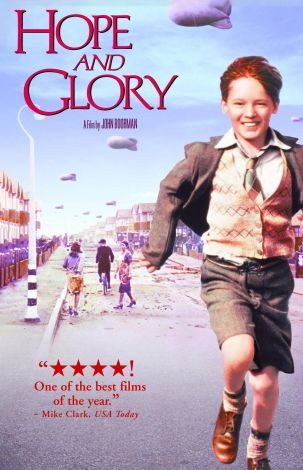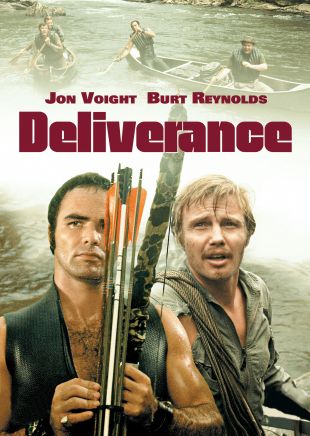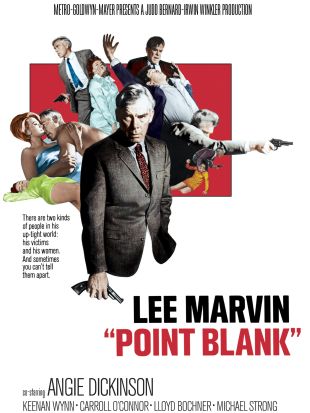One of Britain's most acclaimed directors, John Boorman is known for making films resplendent with great visual flair and taut narrative. Boorman is also known as one of the commercial mainstream's more independently-minded directors; his high-risk approach to filmmaking has insured that his films are as economically unpredictable as they are unique. Boorman himself has been quoted as saying "Filmmaking is the process of turning money into light and then back into money again," an epigram whose simplicity has in many ways defined the ups and downs of his career.
A native of London, where he was born January 18, 1933, Boorman attended a Jesuit school and held down a series of non-descript jobs before he started writing film reviews and working as an editor for the BBC. By 1962, he was the head of the Bristol BBC documentary unit. Three years later, he directed his first fictional film, the whimsical, loosely structured Having a Wild Weekend, which starred the Dave Clark Five. Rather than resembling just another Hard Day's Night rip-off, the film was distinctive and original enough to earn Boorman recognition as an innovative stylist by a number of prestigious publications.
Following more work for the BBC, Boorman made his Hollywood directing debut in 1967 with Point Blank. Starring Lee Marvin as a gangster obsessed with getting revenge on the Organization that once wronged him, the film was seen as an elegant exploration of the increasing depersonalization of life in the modern urban world. It also went on to become recognized as one of the definitive Hollywood films of the late '60s, occupying a place in the groundbreaking Hollywood New Wave next to such classics as Bonnie and Clyde.
Following another collaboration with Marvin on the allegorical Hell in the Pacific (1968), which cast the actor as a WWII soldier stranded on an island with a Japanese soldier (Toshiro Mifune), Boorman made Leo the Last (1970). A surreal tale of London culture clash, it starred Marcello Mastrioanni as an Italian aristocrat living in London's Notting Hill neighborhood. Although the film disappeared at the box office, it did earn Boorman the Best Direction award at Cannes.
Deliverance, Boorman's 1972 follow-up to Leo the Last, was as successful as its predecessor had been overlooked. A nightmarish meditation on the inefficacy of social constructs and civilized niceties in the face of primal squalor, the film was hailed for its depictions of the dark realities of human nature and oppressive machismo. Nominated for three Oscars, including one for Best Director, the film quickly became a classic, with its scenes involving a banjo duel with an inbred Appalachian child and Ned Beatty's rape by a pair of backwoods rednecks recognized as some of cinema's most memorable.
Boorman's next two projects, the Sean Connery vehicle Zardoz (1973) and Exorcist II: The Heretic (1977), were unquestionable disappointments that dimmed the director's post-Deliverance glow. He rebounded with Excalibur (1981), a brutal, visually-lavish adaptation of Malory's Morte d'Arthur. The film enjoyed a warm critical and commercial reception and earned a number of honors, including a Golden Palm nomination for Boorman at Cannes. Following the success of Excalibur, Boorman did not direct again until 1985, when he helmed The Emerald Forest. The story of a man's tireless search for his son, who disappeared into the Amazon rain forest when he was seven, it starred Boorman's son Charley as the grown boy, who had been raised by a tribe of Amazon Indians. Despite earning high marks for its ravishing scenery, the film was a notable flop, with some critics complaining that Boorman sacrificed narrative strength in favor of impressive visuals.
With Hope and Glory (1987), Boorman regained any critical standing he might have lost with The Emerald Forest. The surprisingly gentle, semi-autobiographical account of a boy's experiences during the London Blitz, it was Boorman's least pessimistic film to date, and was hailed for its unforced exuberance. He followed it with Where the Heart Is (1990), a comedy that proved to be a critical and commercial nonentity, and I Dreamt I Woke Up (1991), a critically acclaimed short film that recounted the highs and lows of Boorman's career.
Following the short Two Nudes Bathing and the relatively disappointing Beyond Rangoon (both 1995), Boorman resurfaced in 1998 with The General. The story of legendary, real-life Irish crime lord Martin Cahill, it featured an extraordinary performance by Brendan Gleeson in the title role, and it was hailed as Boorman's best film in years. The director -- who had his own real-life encounter with Cahill when the latter robbed his house years earlier -- won the Best Direction award at Cannes for his work, almost 30 years after winning the same award for Leo the Last.


